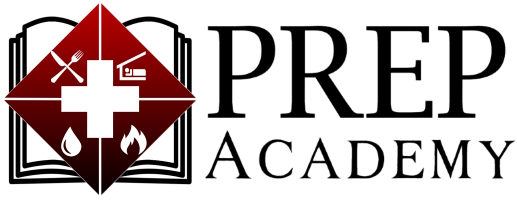Most people consider that there are a few basic items you need to consider for your preparedness journey. Usually those are Food, Water, Shelter and Medical. While these are important, they all are a subset of what I consider myself to be an overarching ‘basic’: Skill Development.
A World of Learning
The ideas of buying food, water, shelter or medical supplies are all useless if you don’t have the underlying skills. If you can’t prepare the food, ensure the water is potable, construct the shelter or use the medical supplies then you probably should have saved your resources for what you do know how to do.
All is not lost. There has never been a time in history where it is easier to learn a new skill. With online resources, stores full of books, and groups across the nation who are reaching out to share their knowledge, this is a prime time to learn new things.
Use DuckDuckGo – a search engine rival of Google that doesn’t track your web activities – to search out virtually anything you can think of and you will likely find dozens (if not hundreds) of sites dedicated to exactly that topic. Many homesteading blogs and channels are out there which cover a variety of topics. Financial planning sites can give you an understanding of how to invest for your future. Medical sites (and soon this one) will guide you through basic first aid. There are even sites out there dedicated to astrophysics for laymen if that is what you are into. The point is that humanity has never had it better when it comes to learning potential – and for most people it is in the palm of their hand.
Direct Experience
So, while the Internet is a great place to get exposure to topics, watching videos and reading blogs will only take you so far. You need to take the concepts you learn and practice them.
Gardeners call this ‘dirt time’. You may learn which seeds to plant, what the soil consistency should be, the fertilizers to your, when to plant in your climate, etc. But you don’t really understand how it all comes together until you step outside and start doing the work.
I spent two years reading books and blogs and watching videos on beekeeping until I felt comfortable enough to finally get a couple of colonies and try it out. I was amazed at how much I learned in the first two weeks. I had the basics from my research, but I quickly found that I didn’t even know what questions to ask to get to the next level. The direct experience helped me develop those questions and searching out those answers gave me another step forward in the skills.
So don’t be an armchair expert. If you haven’t gotten out there and performed the skill, you don’t know as much about it as you think you do. There are few guarantees in life, but that one is a certainty.
Start Your Library
Just because it won’t make you an expert doesn’t mean that reading and research is useless. It is fundamental to the learning process. This is why you should develop a library.
It is practically impossible to learn everything you need to know prior to needing to know it. That means that you may have to learn the basics of something quickly. Or you may (as I did with beekeeping) need to learn enough that you then know which questions to ask to move your understanding forward. This is where a library comes in.
In good times such a library may be online sites, subscriptions to newspapers or financial reports, or even television channels which deal with the topics of interest. Since this site is dedicated to helping you deal with times that are not-so-good, it is also highly recommended that you develop a physical library. This could be books on various topics, printed web pages, even saved videos that can be played offline. Student course manuals, specialized magazines, and notes from conferences can be added to your library as well. The idea is to keep a physical copy for reference.
Pass it On
Finally, realize that learning doesn’t necessarily end with you.
Once you have learned your skills and developed experience with them beyond a new-comer’s level, you have something to teach. If you’ve gone through a couple of planting seasons, you can let others who are starting gardens in your area which plants did well and which didn’t. If you have developed negotiation skills or have deep insight into leadership or firefighting or electronics, you can pass this knowledge on.
Write it down and give it to others (for free, or for a fee if it is valuable enough that others will buy it). This starts your contribution to their library.
If you have the ability, teach it directly to others so that they not only develop a baseline understanding, but also start building the hands-on experience.
At the very least, leave a legacy of your knowledge and understanding for those you care about so that, perhaps, they will not have to start from scratch.
